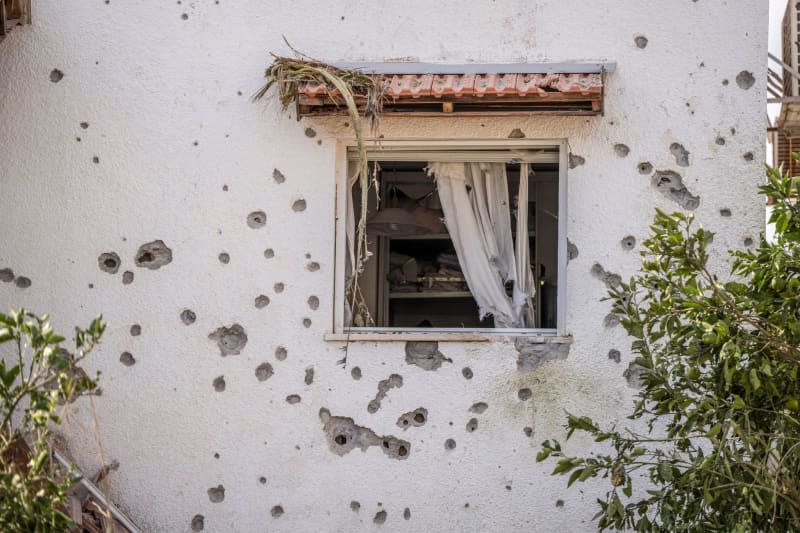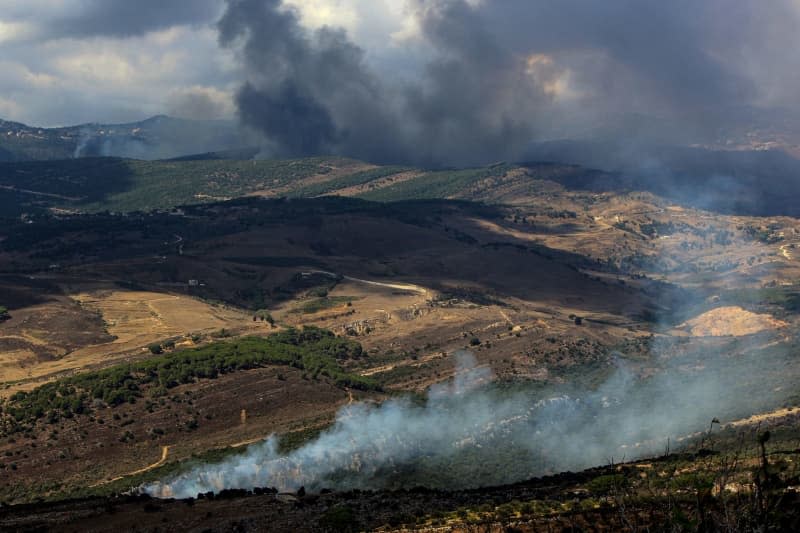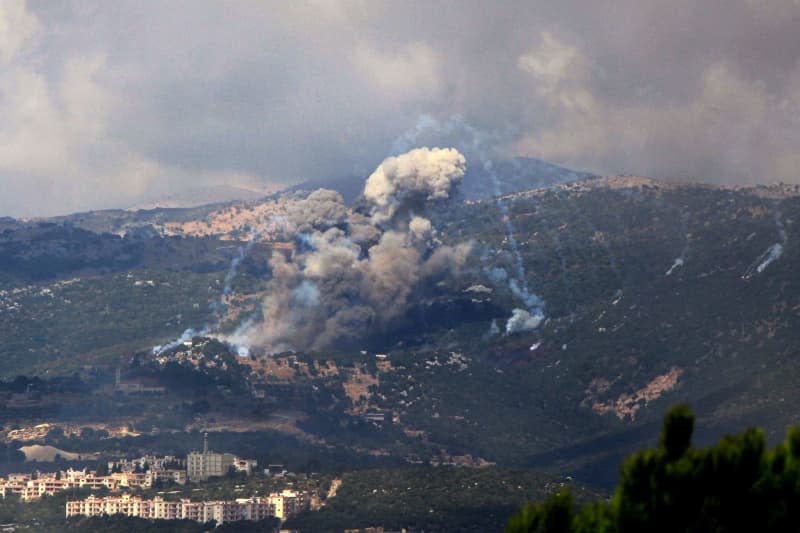The Iran-backed Hezbollah militia in Lebanon and Israel ramped up the rhetoric on Sunday, as violence continued along their border with no end in sight.
Lebanon reported three dead in an Israeli airstrike, while Hezbollah said it attacked a military base near the port city of Haifa in northern Israel early on Sunday.
Hezbollah’s Deputy Secretary General Sheikh Naeem Kassem, speaking at the funeral of top Hezbollah commander Ibrahim Akil, whom the Israelis killed on Friday, said the conflict is entering a new phase.
“We will now determine how to respond to the aggression, and we have entered a new phase with the Israeli army called the ‘Battle of the Open Account,'” Kassem said.
“We follow the front of support and confrontation… we will kill them and fight from where they expect and from where they do not expect,” said Hezbollah’s Deputy Secretary General Sheikh Naeem Kassem, referring to Israelis. He spoke at Akil’s’ funeral.
The death toll from Friday’s Israeli attack on Beirut’s southern suburbs, a hotbed of the Hezbollah movement, rose to 45, the Lebanese Health Ministry said on Sunday.
Israel, for its part, is planning to launch further attacks on the Lebanese Shiite militia Hezbollah in the coming days, Israeli military chief Herzi Halevi said.
The killing of Akil and other senior commanders in an Israeli air strike near Beirut on Friday had “shaken” the organization, the chief of General Staff said.
Israel’s message to Hezbollah and others in the region now is: “We can reach anyone who threatens Israel’s citizens,” Halevi said, noting that Israel has additional capabilities that it has not yet utilized.
Halevi said Israel would make sure those living in the north of the country can return to their homes. “And if Hezbollah has not understood this, then it will take another blow and another blow – until the organization understands.”
The country continues to be on high alert in matters of attack and defence, he said, without mentioning any kind of ground invasion.
Earlier Israeli Defence Minister Yoav Gallant said Hezbollah is coming under increasing pressure from Israel’s military might and is now feeling like it is being pursued.
The Israeli Air Force, by its own admission, has attacked hundreds of Hezbollah positions. In turn, Hezbollah attacked northern Israel with fierce rocket fire.
Hezbollah fires at Haifa
On Sunday, Hezbollah reported launching an attack on an industrial complex and an Israeli military base near the port city of Haifa – it said was in retaliation for Israel’s “brutal massacre” last week, in which coordinated blasts involving electronic devices across Lebanon caused death and injury.
Israel’s military reported on Sunday that Hezbollah had launched around 115 attacks on civilian targets in northern Israel.
Israeli forces were on high alert in the region to ward off the attacks and to “intensify” attacks on Hezbollah, it said. The attacks penetrated further south than previously.
Air raid sirens were also heard to the south-west of Nazareth, which lies inland from Haifa.
Hospitals in northern Israel to move patients to bunker
Amid increased cross-border rocket attacks from Lebanon, hospitals in northern Israel have been instructed to move patients to shelters, Israeli media reported on Sunday.
Rambam Hospital in Haifa, the region’s largest, announced it would begin relocating patients to its underground emergency facility at midday, following army directives.
Rambam’s so-called “bunker hospital,” built in 2014 and located more than 16 metres underground, can accommodate up to 1,400 patients, both soldiers and civilians, according to its website.
Normally used as a car park, the facility is also fortified against biological and chemical attacks.
There have been almost daily military confrontations between the Israeli army and Hezbollah in the border area between the two countries since the Gaza war started, with deaths on both side. Most of those killed have been Hezbollah militia.
Concerns are rising that the IDF could launch a ground offensive into southern Lebanon to force Hezbollah units back from the border in order to allow thousands of Israeli civilians to return to their homes in the region.
UN warns of ‘imminentcatastrophe’ in the Middle East
The United Nations special coordinator for Lebanon, Jeanine Hennis-Plasschaert, has warned that the Middle East is facing a catastrophic situation, stating that the region is “on the brink of an imminent catastrophe.”
She said: “It cannot be overstated enough: there is no military solution that will make either side safer.”















